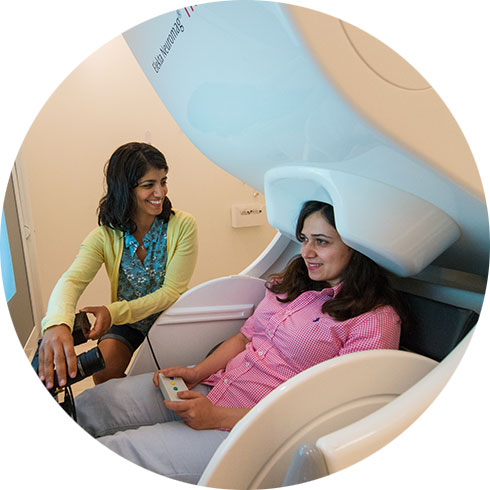
MEG
Magnetoencephalography (MEG) is the measurement of tiny magnetic fluctuations at the surface of the head that result from electrical activity within the brain.
MEG is a noninvasive technique for measuring neuronal activity in the human brain. Electrical currents flowing through neurons generate weak magnetic fields that can be recorded at the surface of the head using very sensitive magnetic detectors known as superconducting quantum interference devices (SQUIDs). MEG can detect the timing of magnetic signals with millisecond precision. This is the timescale on which neurons communicate, and MEG is thus well suited to measuring the rapid signals that reflect communication between different parts of the human brain. MEG is a purely passive method that relies on detection of signals that are produced naturally by the brain. It does not involve exposure to radiation or strong magnetic fields, and there are no known hazards associated with MEG. Dimitrios Pantazis is the director of the MEG lab at MIT.

